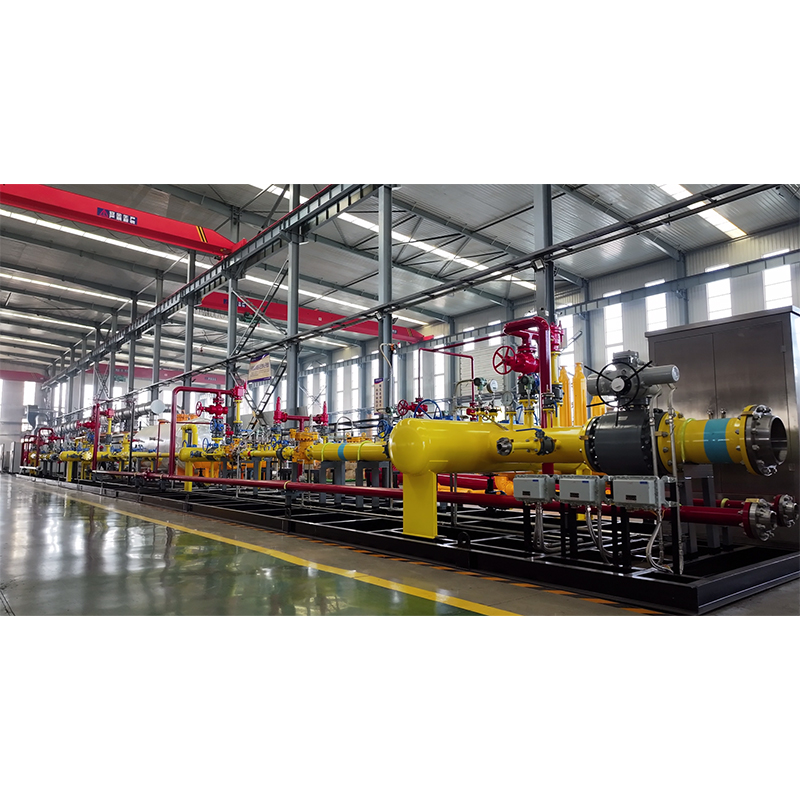
Nov . 14, 2024 16:45
Back to list
مرشح الغاز الطبيعي
The Role of Natural Gas Filters in Ensuring Clean Energy Supply
Natural gas has emerged as a pivotal component of the global energy landscape, offering a cleaner alternative to traditional fossil fuels such as coal and oil. As the world transitions towards more sustainable energy solutions, the importance of filtering and purifying natural gas cannot be overstated. One of the key technologies aiding this process is the natural gas filter, which ensures that the gas reaching consumers is free from impurities that could hinder its efficiency or safety.
Natural gas is primarily composed of methane, but it often contains various impurities such as water vapor, hydrogen sulfide, carbon dioxide, and other hydrocarbons. These contaminants can have detrimental effects on the performance of gas pipelines, heating systems, and appliances. Moreover, the presence of certain impurities can lead to environmental concerns and regulatory compliance issues. Hence, implementing a reliable filtration system is essential for both operational efficiency and environmental protection.
.
Following this preliminary filtration, more sophisticated technologies are employed to remove smaller molecular contaminants. One commonly used method is activated carbon filtration, which utilizes highly porous carbon to adsorb impurities such as volatile organic compounds (VOCs) and sulfur compounds. Additionally, membrane separation technology allows for the selective removal of specific gases, enhancing the overall purity of the natural gas.
مرشح الغاز الطبيعي

Another critical aspect of filtering natural gas is the implementation of odorization. Natural gas is odorless, which makes it difficult to detect leaks. To address this safety concern, an odorant, typically mercaptan, is added to the gas before it reaches consumers. This step is essential not only for safety but also for ensuring that any potential leaks can be detected quickly, minimizing the risk of accidents.
Furthermore, as natural gas resources are extracted from various sources, including shale gas and biogas, the quality of the gas can vary significantly. This variability necessitates robust filtration strategies to accommodate different gas compositions and ensure consistent supply quality. Innovative filtering technologies are being developed that adapt to changing gas profiles, ensuring reliability and efficiency in the distribution network.
The environmental implications of natural gas filtration cannot be overlooked. By enhancing the quality of natural gas, filtration systems contribute to reduced greenhouse gas emissions. Cleaner natural gas leads to lower emissions when burned, making it a more favorable choice in the fight against climate change. Additionally, effective filtration plays a crucial role in capturing and managing harmful gases that could otherwise contribute to air pollution.
In conclusion, natural gas filters are integral to the production and distribution of clean energy. They enhance the efficiency of gas systems, ensure consumer safety, and contribute to environmental sustainability. As the demand for natural gas continues to grow globally, so too will the importance of advanced filtration technologies in securing a cleaner energy future. By investing in these systems, we not only improve the quality of natural gas but also pave the way for a more sustainable and environmentally conscious energy landscape.
Latest news
-
Safety Valve Spring-Loaded Design Overpressure ProtectionNewsJul.25,2025
-
Precision Voltage Regulator AC5 Accuracy Grade PerformanceNewsJul.25,2025
-
Natural Gas Pressure Regulating Skid Industrial Pipeline ApplicationsNewsJul.25,2025
-
Natural Gas Filter Stainless Steel Mesh Element DesignNewsJul.25,2025
-
Gas Pressure Regulator Valve Direct-Acting Spring-Loaded DesignNewsJul.25,2025
-
Decompression Equipment Multi-Stage Heat Exchange System DesignNewsJul.25,2025

